4 types of fibre that improve your gut health
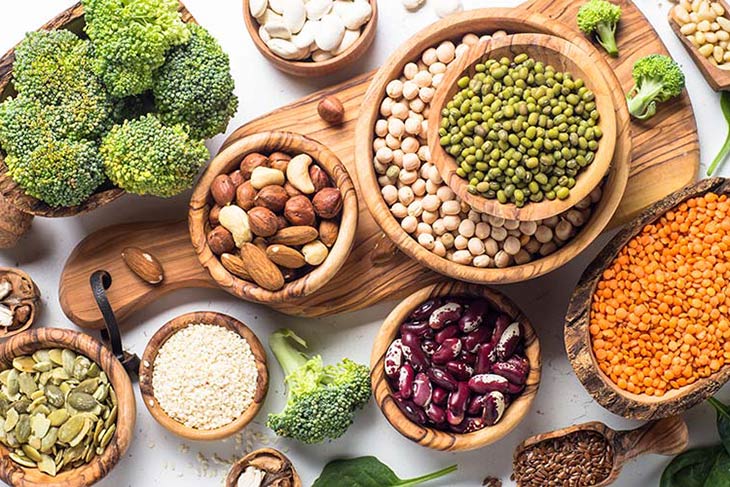
Did you know your gut craves dietary fibre? It does, and by feeding your gut what it needs you can do wonders to your wellbeing and maybe even lose some weight at the same time.
Dietary fibres are non-digestible carbohydrates that are found in edible plant foods. They are the foundation of gut health: getting 30-40g of fibre a day not only helps with proper gut function but also boosts health and wellbeing.
Want to know more about gut health? Take a look at our comprehensive gut health guide!
The 4 different types of fibre are soluble, insoluble, readily fermentable and resistant starch.
Soluble fibre
Soluble fibre includes pectin and gums and is mainly found in plant cell walls. Intake of some soluble fibres lowers LDL cholesterol levels and can also help with constipation. Soluble fibre is found in oats, barley, psyllium husks and lentils.
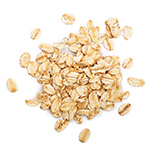 |
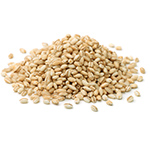 |
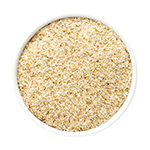 |
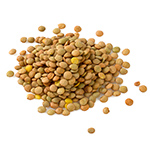 |
| Oats | Barley | Psyllium husks | Lentils |
Insoluble fibre
One of the major roles of insoluble fibre is to bulk up stools and prevent constipation. Common sources of insoluble fibre include wholegrain bread and cereal products, wheat bran, rice bran, the skin of fruit and vegetables, nuts and seeds.
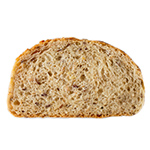 |
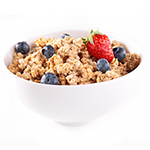 |
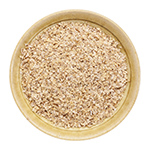 |
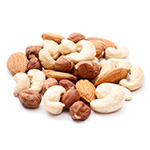 |
| Wholegrain bread | Cereal products | Wheat bran and rice bran | Nuts and seeds |
Readily fermentable fibre
Dietary fibre is the major metabolic fuel for the gut microbiota (the good bacteria in your gut), and fermentable fibre plays a crucial role in building and maintaining a diverse, resilient and healthy gut microbiota. Sources of easily fermented fibre include Jerusalem artichoke, legumes, leeks, onion, garlic, and bananas.
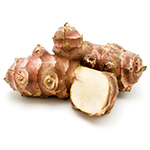 |
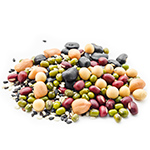 |
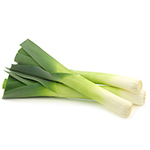 |
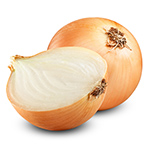 |
| Jerusalem artichoke | Legumes | Leeks | Onion |
Resistant starch
Resistant starch is the part of starchy food that escapes digestion. It is a type of fibre that is particularly beneficial for your gut microbiota. All starchy foods contain resistant starch but the richest dietary sources include chickpeas, red kidney beans, navy beans and other legumes, cooked and cooled potatoes and pasta, and underripe bananas.
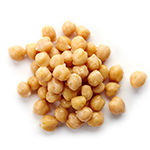 |
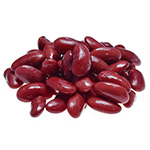 |
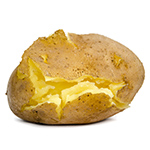 |
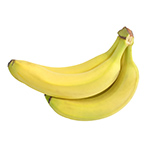 |
| Chickpeas | Red kidney beans | Cooked and cooled potatoes | Under-ripe bananas |
Fibre diversity
Combinations of fibres, for example resistant starch and soluble fibres, can be more effective than individual fibres alone in maintaining normal bowel function and promoting a healthy gut.
It is recommended to eat a wide range of high fibre foods, especially wholegrains, fruits, vegetables and legumes, to maximise the health benefits that fibre offers. Remember too that foods naturally high in fibre are also usually low in fat and salt, and concentrated in nutrients and things such as antioxidants, that can also help support health and wellbeing.
